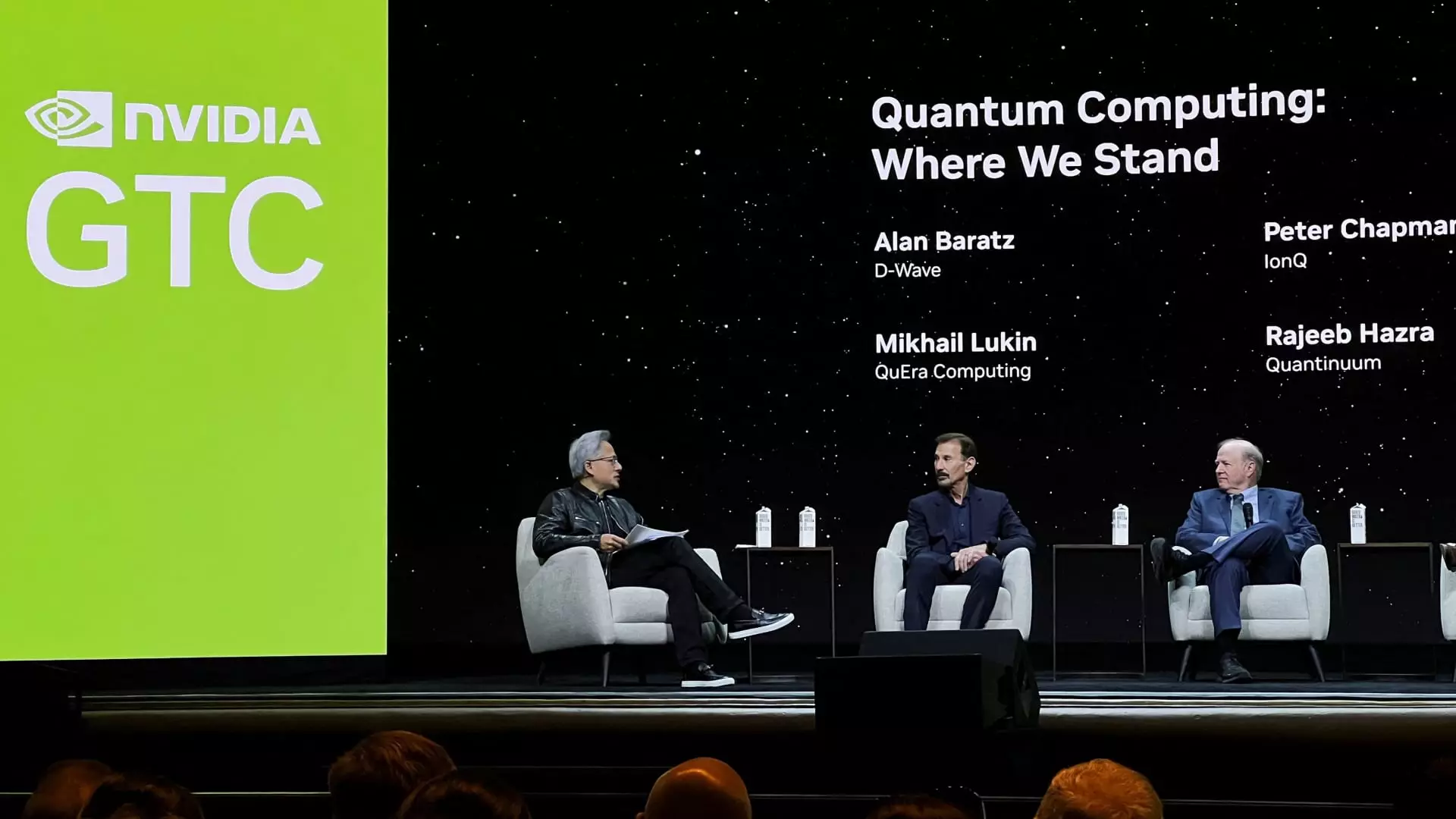At a recent event, Jensen Huang, the charismatic CEO of Nvidia, attempted to backtrack from earlier assertions regarding the timeline for practical quantum computing applications. Many in the tech world might see this as an act of corporate responsibility, but to me, it reveals a troubling trend of overpromising and underdelivering that has plagued the tech industry for too long. By suggesting—and later retracting—extensive timelines to realize quantum computing’s potential, Huang has inadvertently exacerbated skepticism among investors and insiders alike. This expectation management misfire not only rattles markets but ultimately harms the credibility of quantum technology itself, a field desperately in need of genuine confidence and investment.
Investor Disillusionment
The immediate fallout from Huang’s comments was palpable, with several key quantum stocks, including D-Wave and IonQ, seeing significant drops. When a leader of a major tech company speaks, the ripple effects are substantial. The irony of Huang’s efforts to soothe investors who were alarmed by his earlier declarations seems lost in the larger narrative. Instead of salvaging confidence, his latest remarks ignited a wave of disillusionment that once again questioned the viability of quantum technology. It’s essential to recognize that investor sentiment is tied not just to numbers but to the story behind the technology. Huang’s narrative appears disjointed, leaving many investors feeling more insecure than before.
The Misunderstanding of Quantum Potential
Huang’s nuanced stance on quantum computing being seen as a complementary tool rather than a wholesale replacement for classical computing is a valid one; however, framing it this way does little to inspire faith in the long-term future of the technology. Instead, it raises eyebrows and stimulates skepticism. His assertion that labeling quantum systems as “computers” sets unrealistic expectations only serves to confirm the hesitance already seen within the industry. When an influential figure like Huang starts questioning the foundational terminology of an emerging technology, it must make you wonder: if the terminology leaves room for ambiguity, where does that leave practical application?
Quantum Marketing: A Double-Edged Sword
The dissection of Huang’s statements highlights the disturbing trend of how technology is marketed and perceived. As noted by analysts, there is an urgent need for clarity in quantum computing marketing efforts. If quantum technology genuinely holds transformative potential, shouldn’t its promoters do a better job of communicating that effectively? Huang’s suggestion that the field may be poorly positioned due to branding disparities indicates a larger issue of how disruptive technologies get misrepresented. This raises compelling arguments around accountability—how responsible are leaders in setting expectations, and to what extent are they compelled to rectify misconceptions they helped propagate?
A Shifting Landscape for Quantum Research
While Nvidia is undoubtedly working on pushing the envelope with its efforts such as a new Boston research center geared toward collaborating with top-tier institutions like Harvard and MIT, the risks of appearing desperate for quantum legitimacy cannot be ignored. It’s a classic example of a “hope strategy.” Huang’s optimism about quantum’s potential is appreciated, but it begs the question: can mere zeal translate into practical deployment in the notoriously labyrinthine world of quantum? Consider the overarching landscape: the Quantum Defiance ETF has already lost considerable value this year, reflecting an investor base growing fatigued with false dawns and overambitious timelines.
The Echo Chamber of Quantum Enthusiasm
The presence of multiple quantum firms at Huang’s “Quantum Day” event is indicative of a supportive ecosystem, yet it also raises concerns about an echo chamber of unfounded enthusiasm that masks the real issues at play. As sentiments rise and fall with the whims of public perception, the very fabric of collaborative innovation could suffer. With major players in the field experiencing stock dips despite outwardly positive sentiments, the struggle for authenticity becomes painfully apparent. The truth is that the quantum world is rife with uncertainty, and the collective willingness to undertake uncritical applause needs to be critically examined.
In the end, for any real progress to be made, the stakes have become painfully clear: dissipating investor skepticism requires more than just hopeful rhetoric from industry leaders like Jensen Huang; it necessitates actionable insights, a clear timeline, and an unwavering commitment to real, tangible results. The quantum revolution’s future is at a critical juncture, and if not navigated carefully, it risks becoming yet another overhyped technological promise that fades into the ether of unfulfilled potential.

